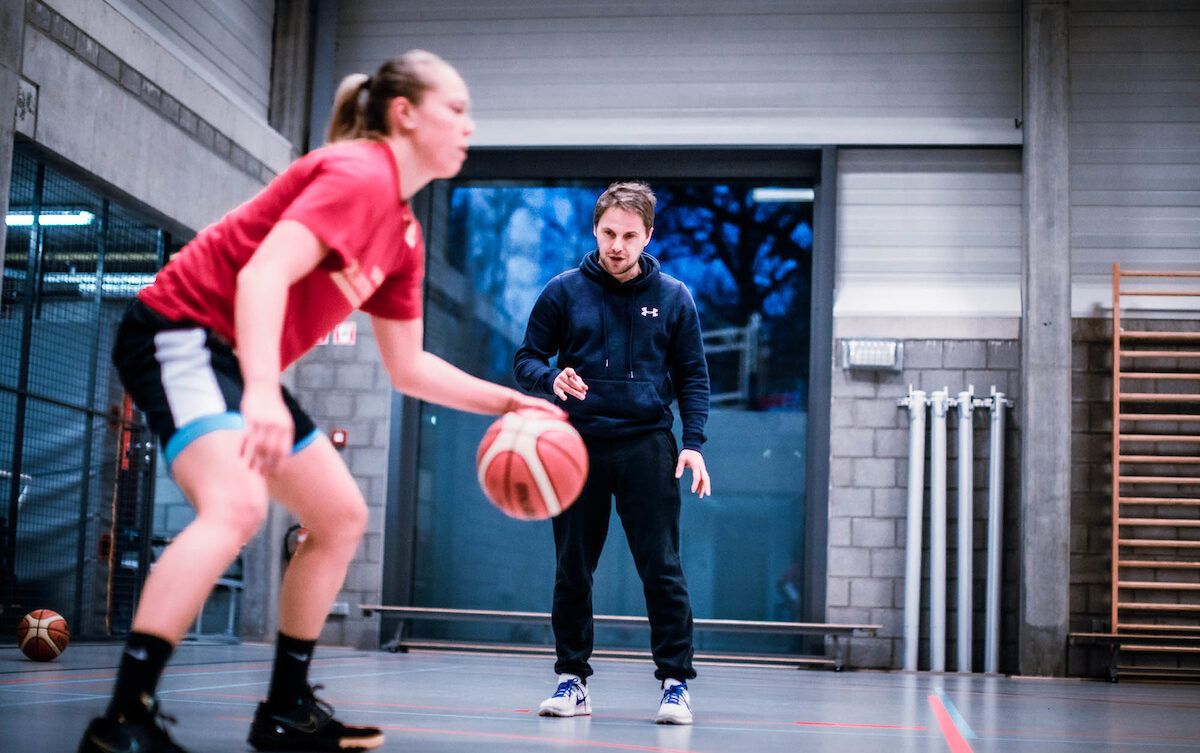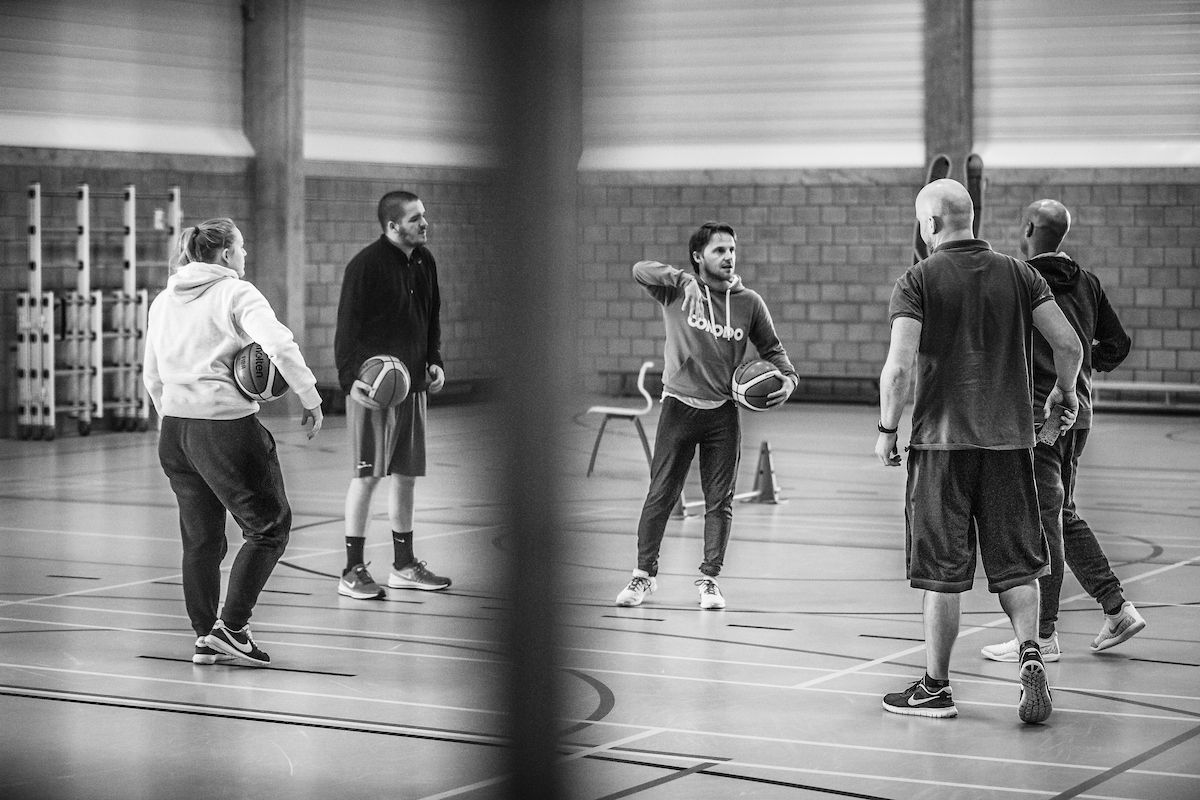Workshop
From basketball
to the workplace
Basketball is a sport involving a lot of speed, a fast-paced rhythm and requires a high degree of on the spot creativity from each player. This requires everyone to be alert and pay constant attention to little signals indicating connection and direction. Players need to continuously share and pick up on those signals to know where to position themselves. And to set the rhythm of the game, first and foremost you need to be highly aware of your own rhythm.
To win games, major tournaments or championships, it is not enough for basketball coaches to just compose perfect tactical patterns and teach them to the team. As a coach, it is incredibly important to know how to get each player into his rhythm in order to maximise his potential.
The same is true for corporate leaders, managers or business owners.
Playing basketball is the equivalent of looking for open space. Once we see that open space, we try and attack it as quickly as possible, controlling it as best we can. If the space is taken by our opponent, the trick as an attacker is to once again attack the new space that has been freed up at speed, without compromising on quality.


It’s a team sport in which a number of people must seamlessly work together to achieve results on a limited playing field and within a certain time limit, respecting some basic rules. Players must be extremely agile, able to make quick decisions and not be distracted by all kinds of external circumstances.
In other words, focusing on what you have 100 percent influence over.
Isn’t that similar to what teams do in companies?
A team can only be successful if its individual members can give their best, thus positively challenging each other. As a leader, it is your job to unleash and grow the talent of each of your team members. You do that by handling feedback correctly, both in giving and receiving it.
Giving the right feedback and effectively handling feedback you receive is crucial when it comes to winning or losing a basketball game. In almost no other sport is the correct use of a time-out so decisive in following up or adapting a particular strategy.
As a team, how do you handle giving and receiving feedback in the heat of the moment?
In this workshop, our aim is to transpose the game of basketball to the workplace with you using the following principles:
- Learning to feel, hear and see your own rhythm.
- Seeing, attacking and controlling free space.
- No speed without control.
- Focusing on what you have 100 percent influence over.
- Being aware of enduring principles that provide an effective breeding ground when giving and receiving feedback: “Good feedback is an elite sport.”
- Facilitating a highly purposeful, people-centred organisation.